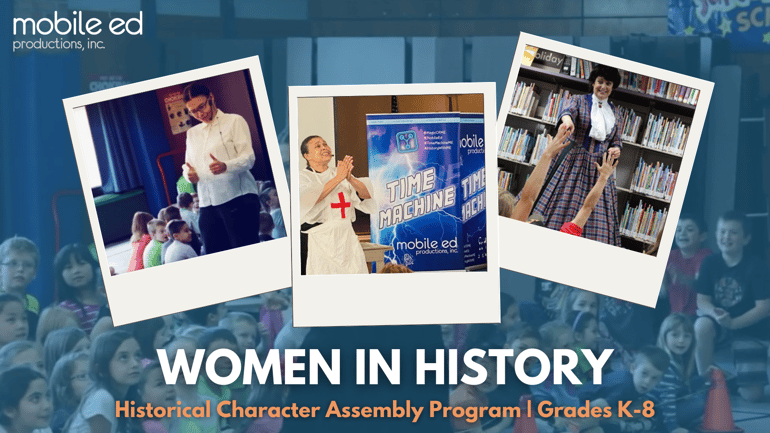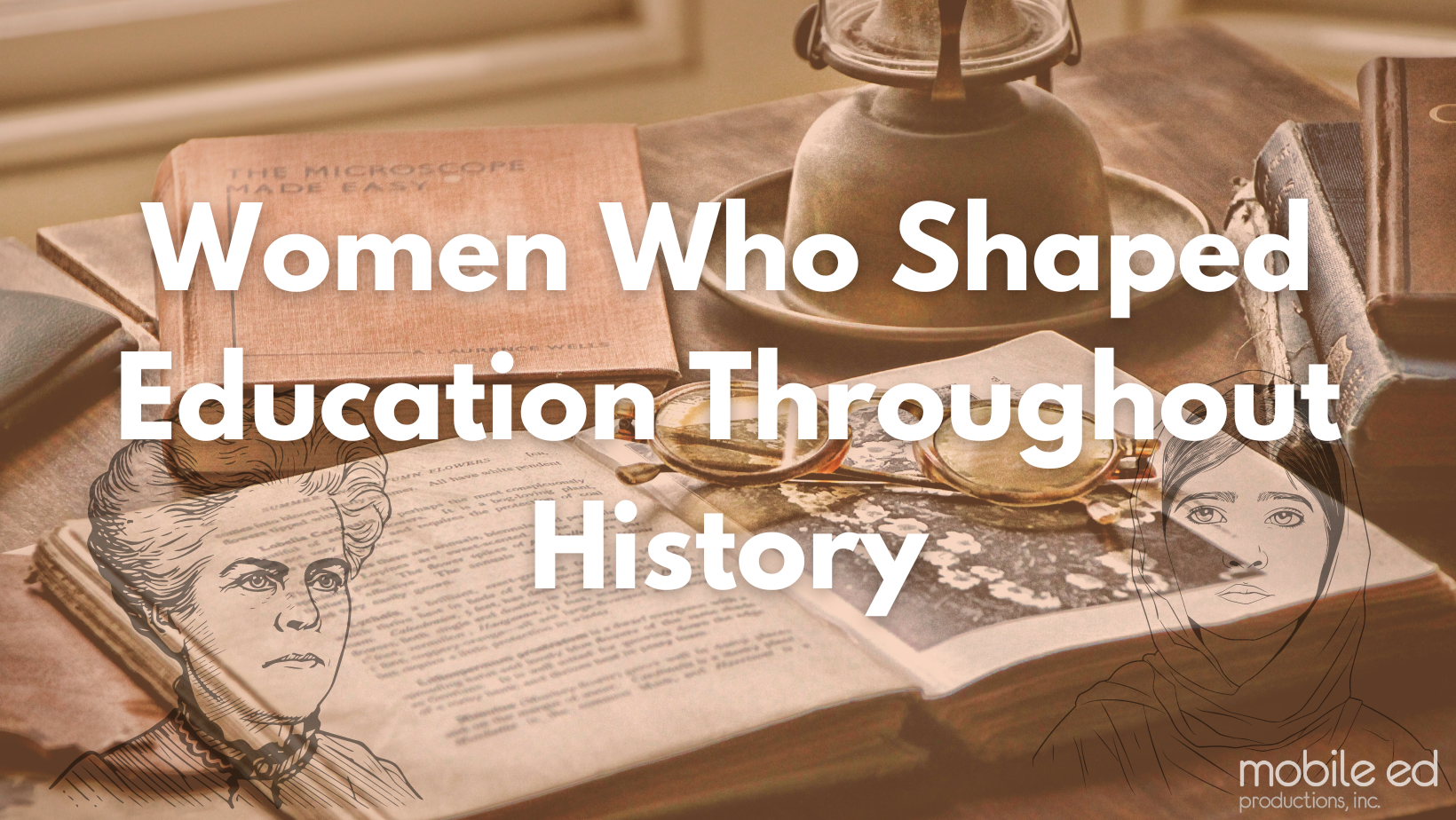
Educators play a key role in a student’s youth as they learn valuable skills, discover their passions, and find their strengths. We have the unique responsibility of supporting students, challenging them, and offering new confidence in students they might not gain anywhere else, but we couldn't do this without the women who shaped modern education. March is Women's History Month, and Mobile Ed is spotlighting some women educators who dedicated their lives to advancing education and changing the world as we know it.
Celebrations of Women's History Month began in 1987 as a week honoring women who made significant impacts on our society. After much liking for these celebrations came about, former president Jimmy Carter officially recognized Women’s History Week in 1980, designating the week of March 8th. After much deliberation and advocating from women’s groups in 1987, the week-long celebration would now be recognized for an entire month, creating Women’s History Month.
Continue reading to learn about women who have impacted and changed modern education.
 Maria Montessori was a physician and educator who developed the well-known educational method called the Montessori. She opened the first Montessori school in Rome in 1907 and traveled the world to educate others about this educational approach.
Maria Montessori was a physician and educator who developed the well-known educational method called the Montessori. She opened the first Montessori school in Rome in 1907 and traveled the world to educate others about this educational approach.
Sally Ride was the first American woman in space. After her historic missions in orbit, she became a professor at the University of California, San Diego where she shared her expertise and knowledge of space. Ride developed her own company, Sally Ride Science, to encourage young girls to pursue careers in STEM.
Lucy Wheelock was the "pioneer" of American Kindergarten. Though raised with great education and aspirations to learn teaching at Wellesley College, she changed paths after visiting a kindergarten class. She admired teaching youth and taught kindergarten for ten years until she was asked to train other teachers to teach young students in Boston Public Schools.
Catherine Ferguson, born a slave in 1779, was the founder of the first Sunday School in New York City. Separation from her mother as a young girl inspired her passion for working with young children. Though illiterate herself, her passion for children's education and her faith inspired her to start a Sunday School for poor children after she became free.
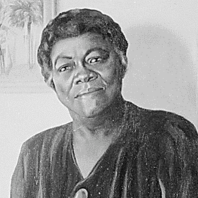
Mary McLeod Bethune grew up working with her formerly-enslaved parents on their cotton farm. After the war ended, Bethune attended and graduated from Scotia Seminary. She became an educator, eventually opening the Daytona Beach Literary and Industrial School for Training Negro Girls. She was also an active player in racial and gender equality, founding the National Council of Negro Women and becoming vice president of the NAACP.
Anne Sullivan defeated the odds of a childhood illness that almost left her blind, the death of her mother, and the abandonment of her father to become a very successful teacher for people with sight and hearing impairments. She is well known for teaching Helen Keller and becoming her lifelong friend and companion.
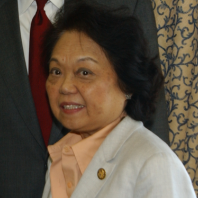
Patsy Mink grew up in Hawaii and won her first election in high school for class president. Struggling with racial discrimination in her college days, she moved back to Hawaii with hopes of becoming a doctor. After not getting accepted into medical school, Mink became a lawyer and was a private attorney for the House of Representatives. She was voted into a seat in the Hawaii State Senate and then the House of Representatives as the first Asian-American woman to serve in Congress. She eventually authored Title IX, criminalizing the exclusion of education based on sex.
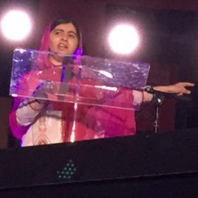
Malala Yousafzai was raised in Mingora, Pakistan where she loved attending her all-girls school. Her father worked as a teacher. When the Taliban took control of her city, girls were no longer allowed to go to school. She spoke out about girls' right to education and was shot as a result. Surviving after months of surgeries and rehabilitation, she continued to speak out and started the Malala Fund, a charity helping girls find bright futures. She is the youngest Nobel Peace Prize winner.
Mobile Ed has a one-of-a-kind program that brings important women back from the past to meet your students right in their classroom. In the Women in History program, your students will get to meet various women who have changed the world while understanding how and why they did it. Through their personal stories, students will get a well-rounded historical background about various time periods while also giving them the confidence to change the world around them.
In the Women in History program, students will learn about:
-
- Clara Barton
- Florence Nightingale
- Madame Curie
- Amelia Earhart
- Helen Keller
- Anne Sullivan
- Harriet Tubman
- Annie Oakley
- Eleanor Roosevelt
- Bessie Coleman
Contact our team here to learn more about our educational programs.

